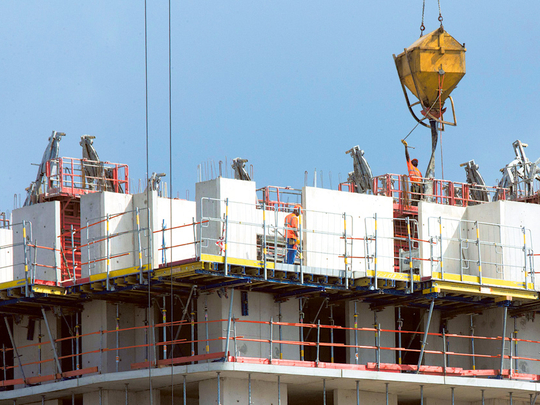
Legal disputes related to major construction projects in the Middle East are the second longest in the world, which is marginally lower than those in Asia, according to the 2014 ARCADES Construction Disputes report.
This is primarily due to a failure to properly administer contracts by both parties and the lack of contract management. This has meant the region took an average 13.9 months to settle a dispute.
It also highlights another commonly held view that clear roles and defined authority within teams are critical factors in project delivery and avoiding disputes.
When compared to previous years, the region’s length of construction disputes has dropped from 2012, compared to the situation in Asia, which saw an increase to an average of 14 months to resolve, 13.7 months in the US and 6.5 months in Europe.
The region has struggled to deal with fallouts from major projects in the past. But the industry as a whole is taking precautionary measures to manage, avoid and resolve disputes when dealing with projects.
It is important for companies to evaluate the underlying causes of construction disputes and implement due diligence to minimise its occurrence, especially given the number of upcoming mega-projects expected across the UAE and the wider region.
Construction disputes in the Middle East declined in value to $40.9 million last year. This is $24.1 million lower than the previous year, when dispute settlements were valued at $65 million.
Many of these were resolved away of the public eye, but do often result in heavy costs and time overruns. The Arcadis research indicates the scale of this problem and highlights the need for better administration and a proactive approach to risk management to help mitigate against the most common causes that lead to disputes.
The Middle East is set to experience unprecedented levels of projects over the next 20 years and valued at $1 trillion. As the region continues to ramp up on social infrastructure spend, a vast amount is at risk due to the number of different parties involved in projects.
There is a discrepancy when joint ventures (JV) were in vogue in the Middle East, whereby 46 per cent of these ended up in disputes during the year, the highest of any region covered in the report. Where a JV was in place, it had a one in three chance of driving a dispute. This is an increase from 2012 where instances of JV dispute were less commonplace at 19 per cent.
The top five causes of construction disputes in the Middle East were: (1) failure to properly administer the contract; (2) employer imposed change; (3) failure to understand and/ or comply with its contractual obligations; (4) errors and/or omissions in the contract document and (5) unrealistic contract completion date being defined at tender stage.
Arbitration was deemed the most popular method of alternative dispute resolution in the Middle East, followed up by party-to -party negotiation and expert determination.
All too often, we are witnessing a great deal of time and effort placed in selecting, negotiating and agreeing contract terms and conditions, only for them to be placed in a dusty drawer and not implemented, by both parties.
Selection of the right form of contract is a crucial first step along with identifying the best contractor and consultant who is capable for performing in accordance with the contract. This should be followed by diligently administering the whole contract conditions by both parties from inception to close out.
The writer is Head of Quantum Services at EC Harris, the built asset consultancy firm.












